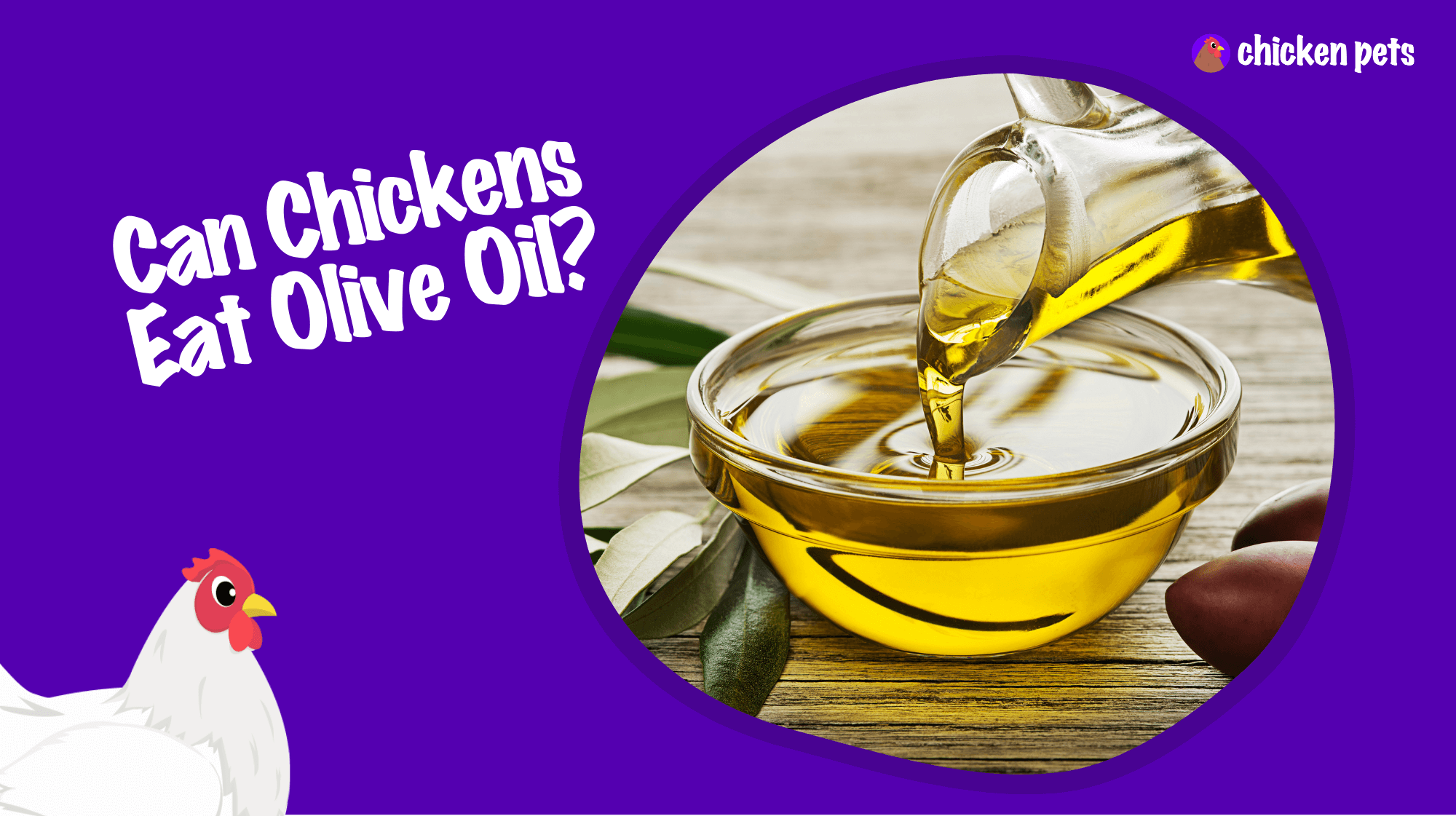Chickens and olive oil are two of the most delicious things in the world, but can they be united? Can chickens eat olive oil? To help you understand the importance of a balanced diet for your feathered friend, we will take a deep dive into the world of olive oil and chickens, exploring the nutritional value, benefits, and risks and how to prepare the food for your flock. So, grab your chicken feed and get ready to cluck your way to a healthier flock.
Can chickens eat olive oil?
Yes, chickens can safely eat olive oil. Chickens can consume olive oil in small amounts as it is considered safe for them. Olive oil can help hens produce healthier eggs, relieve egg-bound hens, and resolve an impacted crop.
Olive oil is a rich source of monounsaturated fatty acids and antioxidants that can provide various health benefits to chickens, such as improved digestion, enhanced immune function, and increased egg production. It can also help reduce inflammation and promote healthy chicken skin and feathers.
However, it is essential to monitor the amount of olive oil given to chickens, as excessive consumption may lead to obesity and digestive problems. As with any dietary change, it is best to consult a veterinarian or poultry nutritionist before introducing olive oil to a chicken’s diet.
Olive oil can help hens produce healthier eggs.
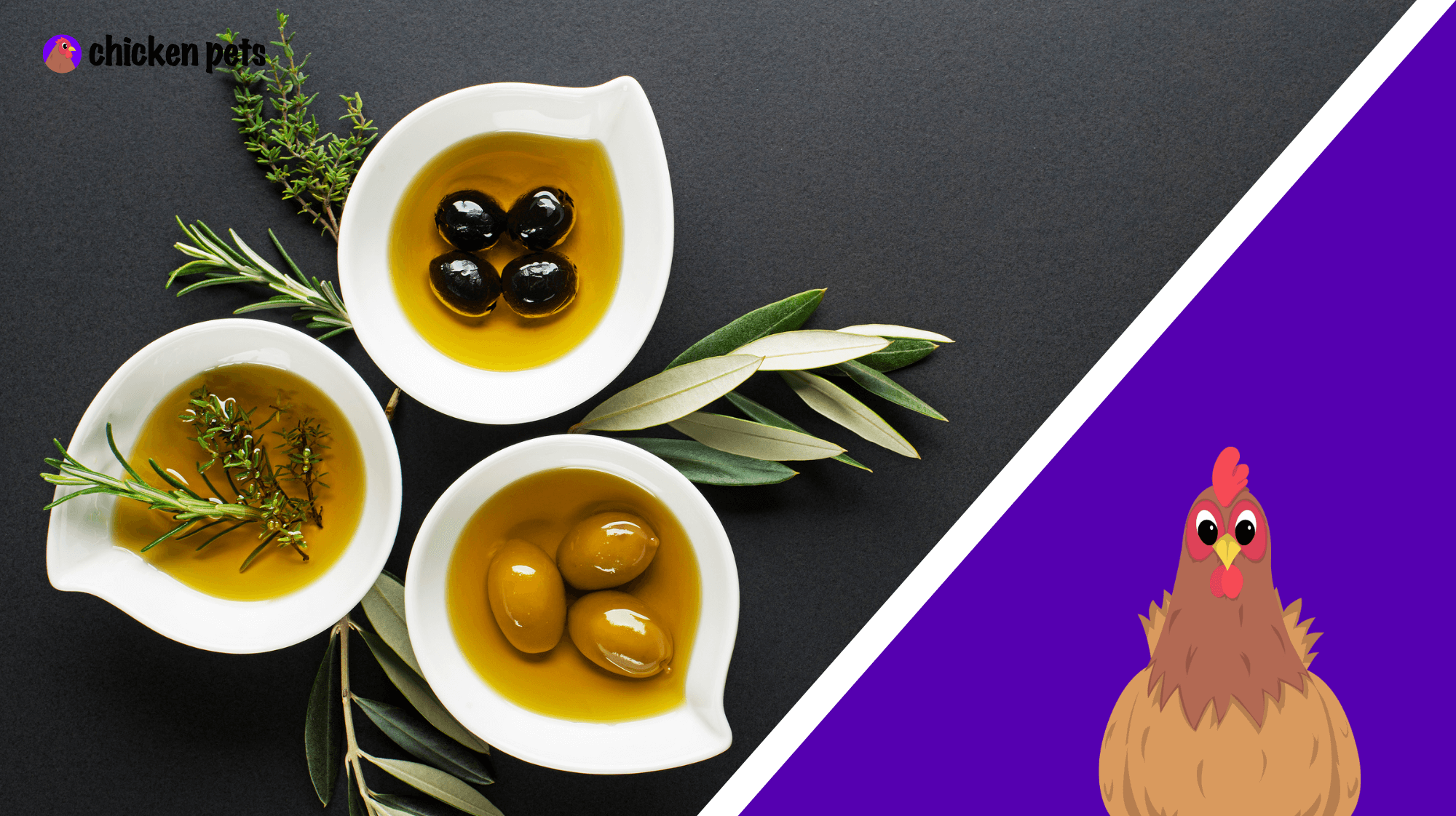
As a chicken keeper, you must ensure that your hens produce healthy, nutritious eggs. One way to do this is by feeding them olive oil. Olive oil is an excellent source of healthy fats and vitamins that can help improve the overall health of your hens. It contains monounsaturated fatty acids that promote a healthy heart and circulation and aid digestion.
Adding olive oil to your hens’ diet in moderation can help them produce healthier, more nutritious eggs, and this can benefit not only your hens but also you and your family who consume the eggs.
Olive oil can relieve egg-bound hens.
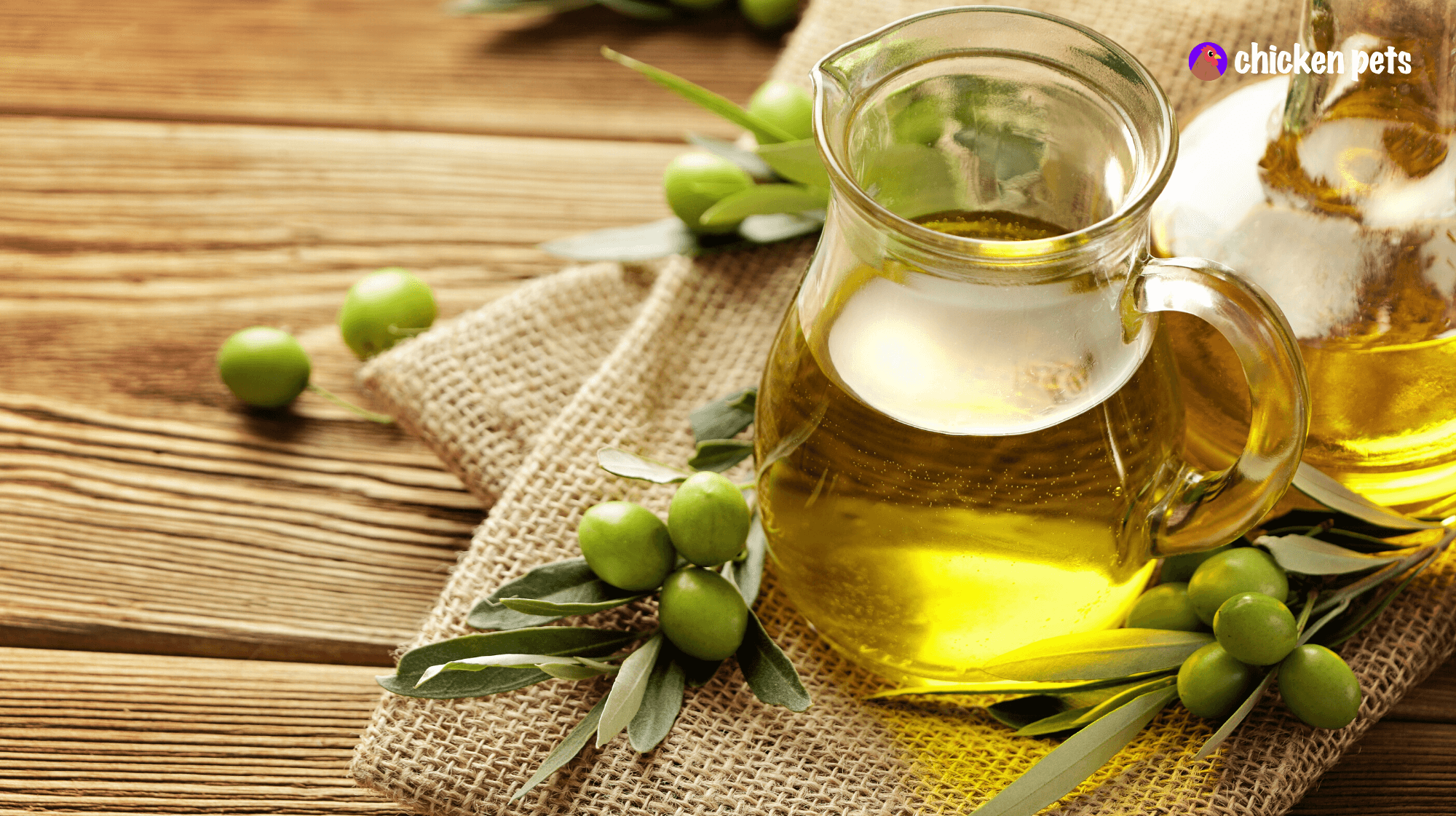
Sometimes hens can experience egg-binding when an egg gets stuck in the hen’s oviduct, and this can be a severe and potentially life-threatening condition if not treated promptly. However, olive oil can help relieve egg-bound hens.
What are the symptoms of an egg-bound chicken?
The symptoms of an egg-bound chicken include lethargy, decreased appetite, and straining to lay an egg. If you notice any of these symptoms in your hens, it is essential to act quickly.
How to use olive oil to help an egg-bound chicken.
To use olive oil to help an egg-bound chicken, you can administer a small amount of olive oil orally to lubricate the oviduct and allow the egg to pass. You can gently massage the hen’s abdomen to help the egg move. In severe cases, a veterinarian may need to be consulted.
Olive oil can resolve an impacted crop.
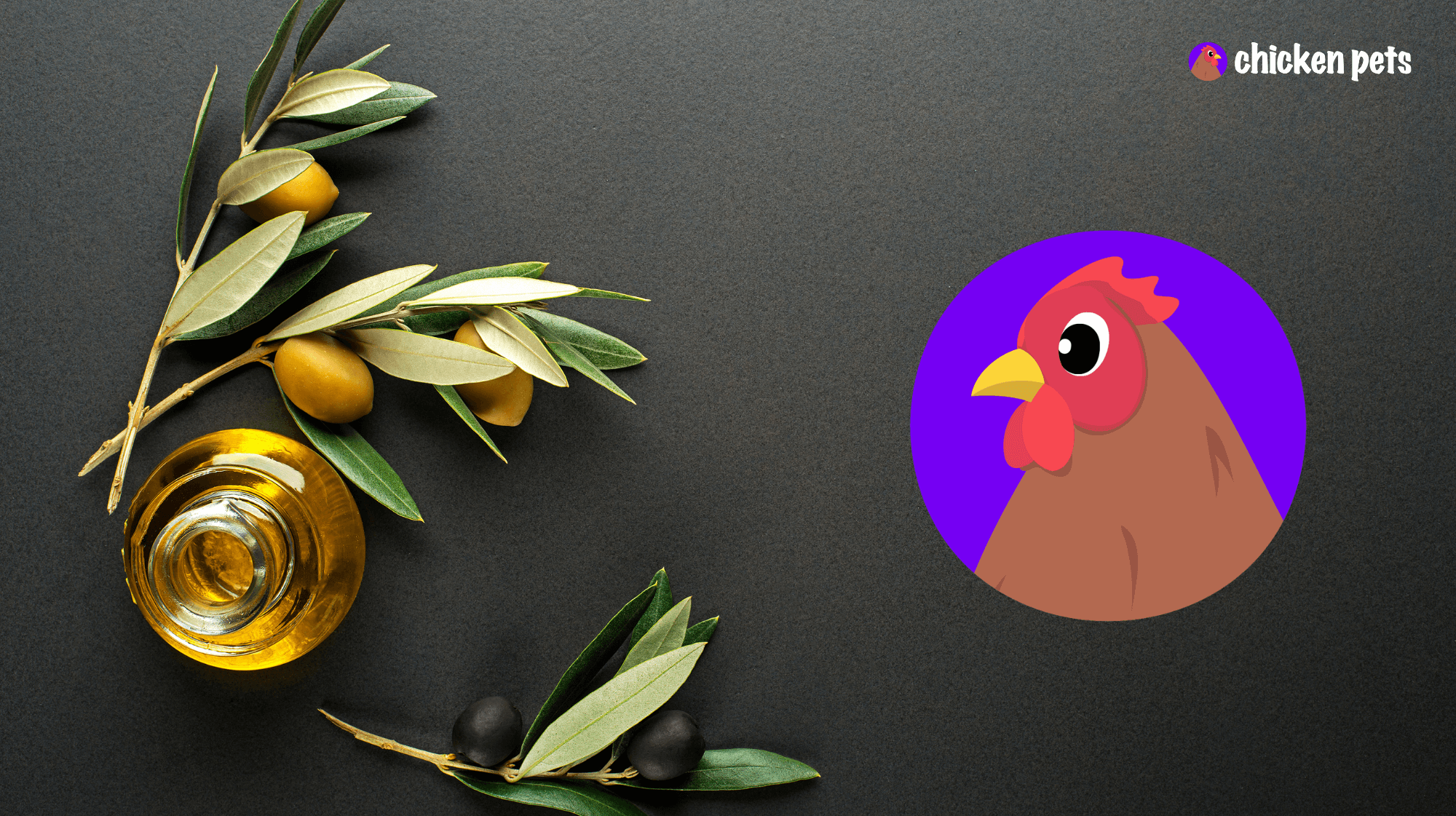
An impacted crop is another health issue that chickens can face. The crop is the first part of a chicken’s digestive system, where food is stored before it is further digested. An impacted crop occurs when food or other material becomes stuck in the crop and cannot pass through to the rest of the digestive system. Olive oil can help resolve an impacted crop.
What are the common causes of an impacted crop?
The common causes of an impacted crop include overeating, eating inappropriate or foreign objects, and disease. Impacted crops can cause discomfort and other health issues if not treated promptly.
What are the symptoms of an impacted crop?
The symptoms of an impacted crop include a swollen or distended crop, lack of appetite, and regurgitation or vomiting of food. If you notice any of these symptoms in your chickens, it is essential to take action.
How to use olive oil to fix an impacted crop.
To use olive oil to fix an impacted crop, massage the crop gently to help break up any blockages. You can also administer some olive oil orally to help lubricate the crop and aid digestion. In severe cases, a veterinarian may need to be consulted.
Can chickens eat olives?
Yes, chickens can eat olives as a treat, but it should not be their primary food source. Olives contain healthy fats and nutrients that can benefit chickens, such as improved digestion and increased egg production. However, like with any new food, it is essential to introduce olives gradually and in moderation to prevent any digestive issues. Additionally, removing the pits from the olives before feeding them to chickens is recommended to avoid choking hazards.
Chickens eating olive oil and a balanced diet.
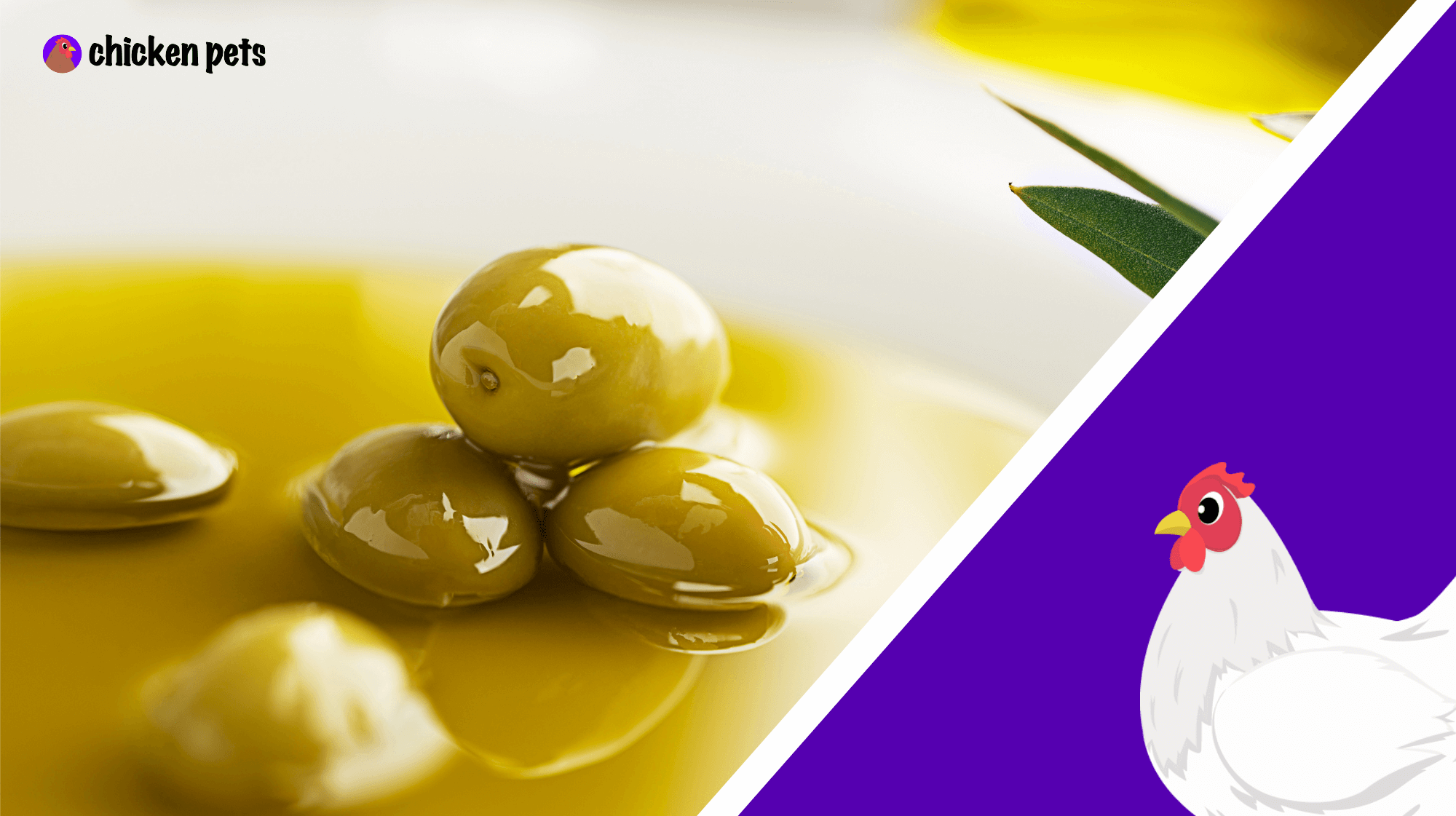
Like humans, chickens need a balanced diet to stay healthy and happy. After all, you are what you eat! A chicken’s diet should be mainly made up of high-quality chicken feed, which should make up around 80-90% of its diet. The remaining 10-20% of their diet can consist of tasty treats like fruits and vegetables. Learn about feeding and watering your chickens in our blog, Feeding and Watering Chickens Ultimate Guide.
Nutritional value of olive oil to chickens.
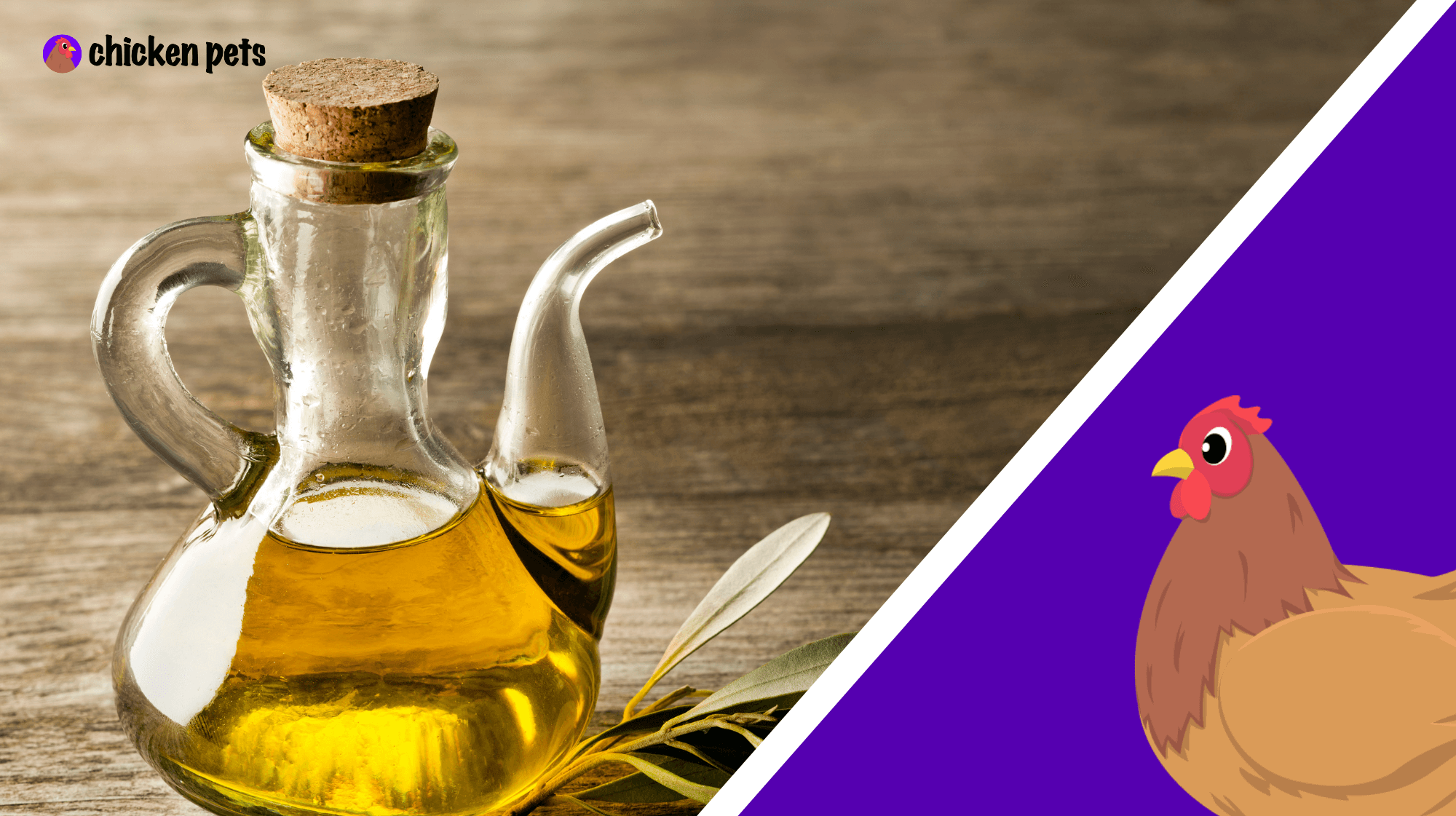
The olive oil debate is a hot topic among chickens everywhere! While some chickens swear by its health benefits, others are unsure of its nutritional value. Let’s take a closer look at the facts.
Olive oil is an excellent source of healthy fats and vitamins that can benefit chickens in many ways. It contains vitamins A, E, and K and minerals like zinc, iron, and phosphorus. It is also high in monounsaturated fatty acids, which can help promote a healthy heart and circulation. It can also help with digestion and keep the feathers of chickens looking shiny and healthy.
However, while olive oil can benefit chickens, it should not be their primary source of nutrition. While it can provide some vitamins and minerals, it does not provide all the essential nutrients chickens need to stay healthy. So, it is vital to ensure that chickens are getting a balanced diet that includes plenty of fresh fruits and vegetables, grains, and other healthy fats.
In addition, olive oil should not be given to chickens in large amounts or as a replacement for other sources of nutrition. Too much olive oil can cause digestive issues, so giving it in small amounts or as an occasional treat is best.
Risks and dangers of chickens eating olive oil.
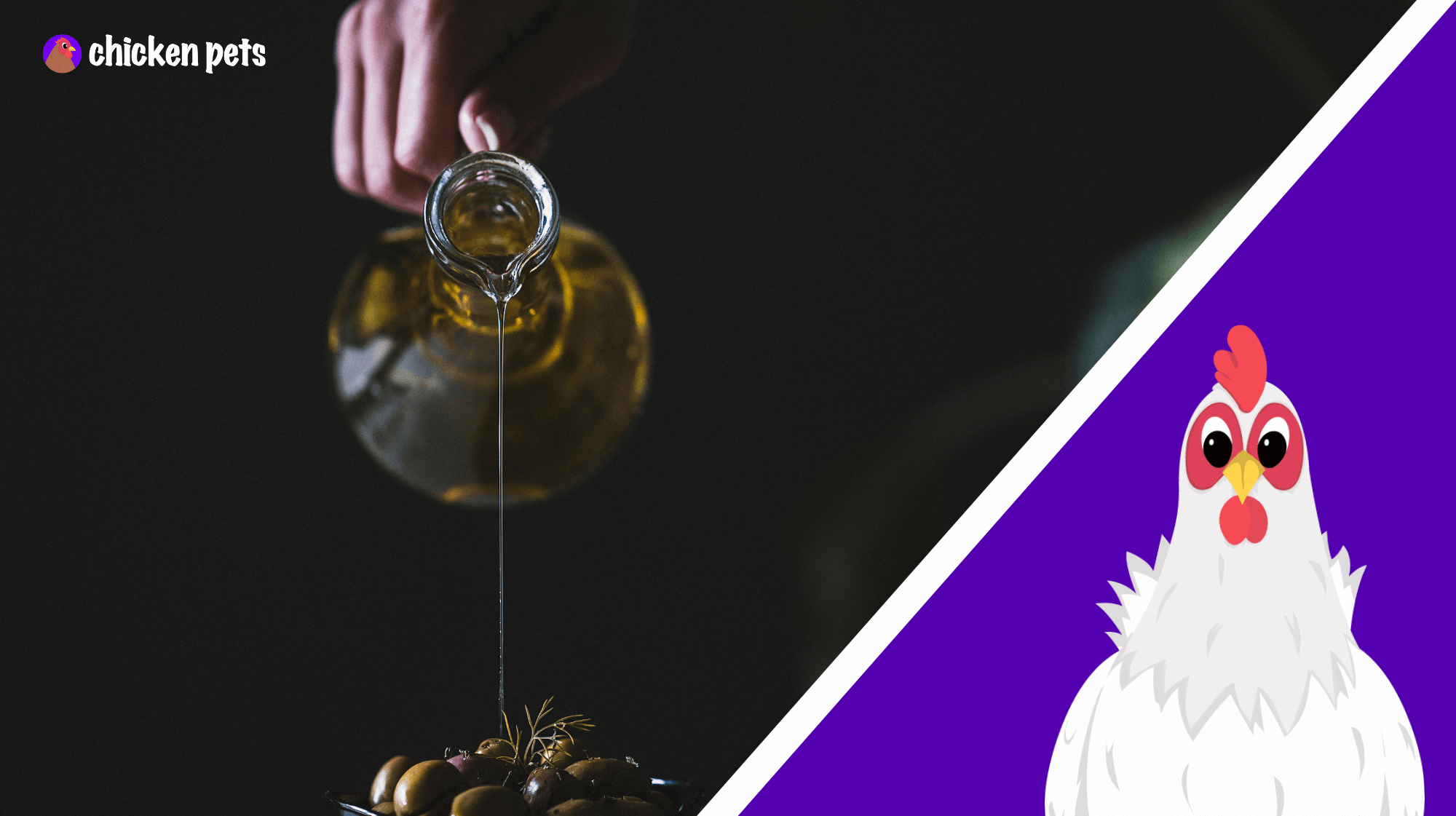
It’s no secret that chickens love treats, and they’ll often go after anything that looks or smells like it might be tasty. But is giving them olive oil a good idea? Well, it’s not necessarily harmful if you provide it to them in moderation. Olive oil is an excellent source of healthy monounsaturated fats, and it can help keep your chickens’ feathers glossy and their skin healthy. However, if you give them too much, you can run into trouble.
Chickens can quickly become overloaded with fat from too much olive oil, leading to digestive issues, such as diarrhea and vomiting. So remember: a little olive oil can be good for your chickens, but too much can be harmful. Moderation is key!
It’s also essential to ensure that the olive oil you’re giving your chickens is fresh and hasn’t been sitting around for too long. Spoiled or moldy olive oil can contain bacteria that can make your chickens sick. So if it’s been sitting on the shelf for a while, it’s probably best to throw it out.
And, of course, it goes without saying that you should never give your chickens anything that could pose a choking hazard. So while it may be tempting to give your chickens a big ol’ spoonful of olive oil, it’s probably best to stick to smaller amounts. That way, you can be sure that your chickens are getting the healthy fats they need without the risk of any health problems.
In the end, olive oil can be an excellent treat for your chickens. Just remember to keep it in moderation and make sure it’s fresh. And, of course, don’t forget to give your chickens plenty of other healthy treats, like fresh fruits and vegetables, to ensure they get all the nutrients they need to stay healthy and happy!
Wrap up. Can chickens eat olive oil?
In sum, if fed in moderation, olive oil can be a healthy addition to a chicken’s diet. It’s important to remember that a balanced diet is critical for a chicken’s health; olive oil is just one part of that. So, if you want to add a little bit of olive oil to your chicken’s diet, make sure to do it responsibly, and your chickens will thank you!

